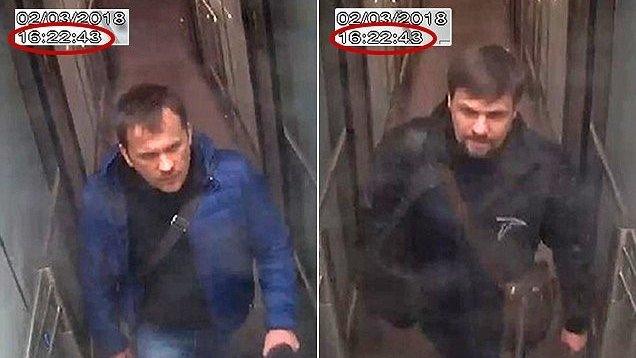Skripal suspects: Key excerpts from their first interview
- Published
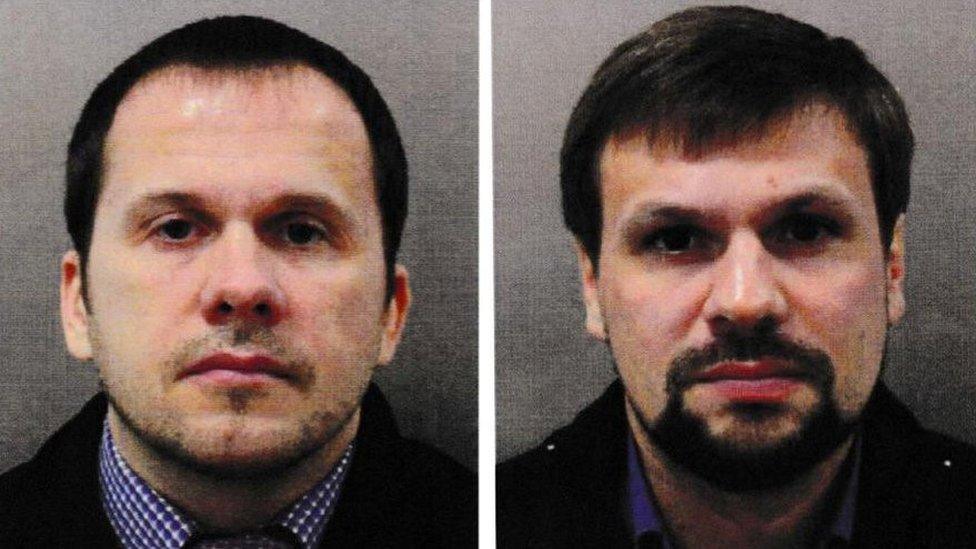
Alexander Petrov and Ruslan Boshirov say they were tourists visiting the English town of Salisbury
The two men named as suspects in the poisoning of Russian ex-spy Sergei Skripal in the UK - Alexander Petrov and Ruslan Boshirov - gave a surprise interview to RT, Russia's state-run international broadcaster.
They claimed they were merely tourists visiting the English town of Salisbury at the time the poisoning happened. Here are some key excerpts from their interview.
On what they were doing in Salisbury
"Our friends had been suggesting for a long time that we visit this wonderful town [Salisbury]," Mr Petrov said.
"It's a tourist town - there's a famous cathedral there. Salisbury cathedral," Mr Boshirov said.
"It's famous for its 123-metre spire, it's famous for its clock - the first clock to be invented in the world, and it's still going."
Asked if they had gone to Salisbury to look at the clock Mr Petrov said: "No, no - our plan from the outset was to arrive in London and chill out, basically. It wasn't a business trip. We planned to spend some time in London and travel to Salisbury - of course that was only intended to be a day-trip."
"We arrived in England on 2 March, then went to the railway station to see the timetable, to see where we could go," Mr Petrov said.
The pair planned to spend just a day in Salisbury, he said, because "that's enough - there's no more to do there after one day".
"We arrived in Salisbury on 3 March and tried to walk through the town, but as it was blocked up with snow we could only spend half an hour there," Mr Petrov said.
"Of course, we went there to see Stonehenge, Old Sarum, but we couldn't do it because there was muddy slush everywhere. The town was covered with this slush. We got soaked, went back to the station and took the next train back [to London]."
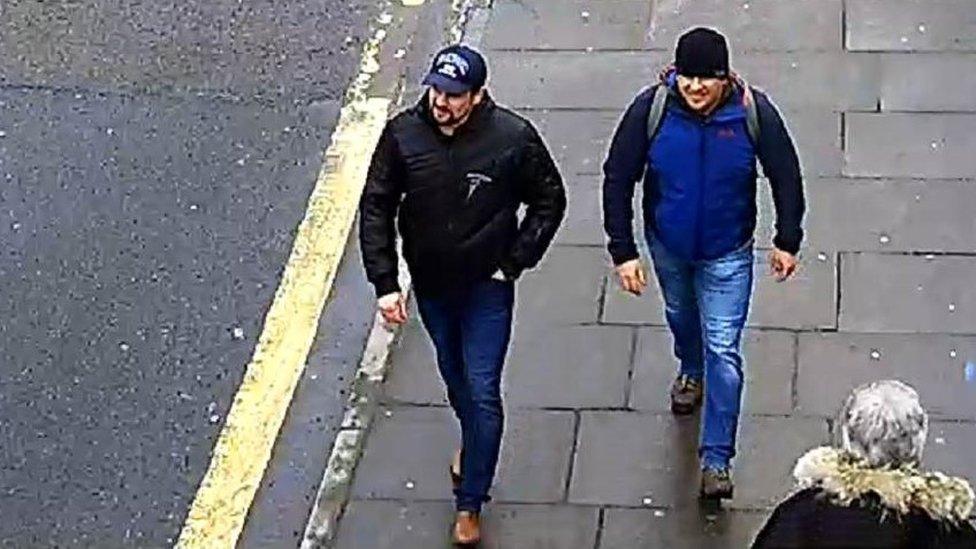
The pair were seen in Salisbury on 4 March, a day after visiting for "reconnaissance", UK investigators say
"We drank hot coffee because we were just soaked. The longest we spent there on the 3rd was one hour," Mr Boshirov added.
Mr Petrov said "we had the aim of visiting Old Sarum [an Iron Age settlement] and the cathedral and decided to finish all that on the 4th".
When asked if they saw those sights he said, "on the 4th, yes. We saw them, but again at lunchtime it started snowing heavily, so we left earlier than planned".
On whether they went to Sergei Skripal's house
"Maybe we did [approach] Skripal's house, but we don't know where is it located," Mr Boshirov said.
When the interviewer asked them whether they had Novichok or any poison with them, the men emphatically said no.
She then asked whether they had the Nina Ricci perfume bottle which UK investigators say contained the substance.
"For normal blokes, to be carrying women's perfume with us, isn't that silly? The customs are checking everything, they would have questions as to why men have women's perfume in their luggage. We didn't have it," Mr Boshirov said.
On why they shared a hotel room
The interviewer asked them why they went everywhere together and shared a hotel room.
"It's normal to arrive somewhere and share a twin-bed room. You save money. It's more fun to be together, simpler," Mr Boshirov said.
Both men sounded distressed as they spoke about how their lives had changed since they were named in the UK as Russian intelligence agents who attempted to poison the Skripals.
"When your life [is] turned upside down, you don't know what to do and where to go. We're afraid to go out, we fear for ourselves, for our lives and the lives of our loved ones," Mr Boshirov said.
"We just want to be left alone, we're tired," he said.
Asked whether they had recently been to any European state, the two said they had.
"Sure… In Switzerland, we were there a couple of times… We spent New Year in Switzerland."
On their alleged work activities
The pair said they had been in Europe to do business related to sports nutrition.
"We examine the market, see if there is something new - some biologically active additives, amino acids, vitamins, microelements. We pick up the most necessary things, come here and decide how to bring the new products from that market here."
- Published13 September 2018
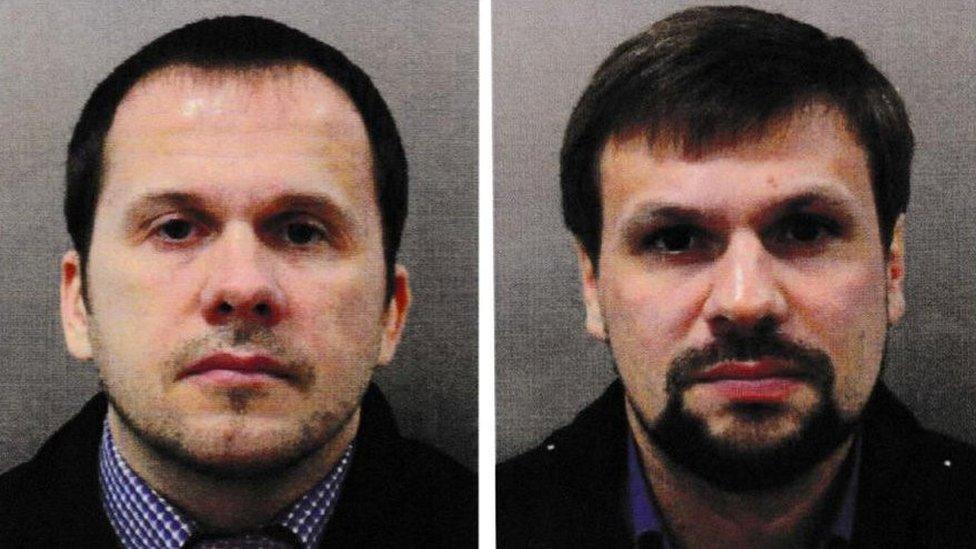
- Published12 September 2018
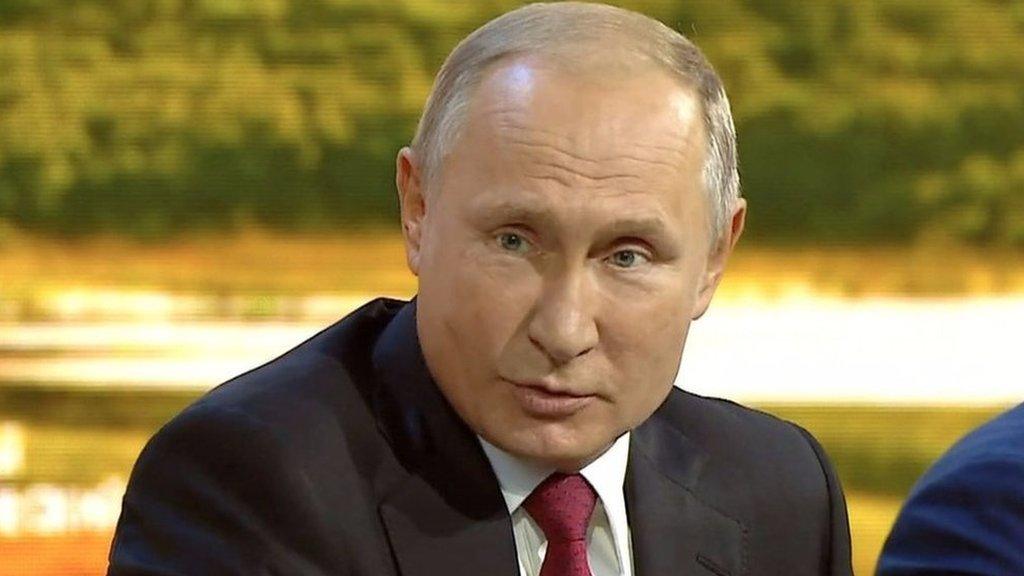
- Published27 September 2018
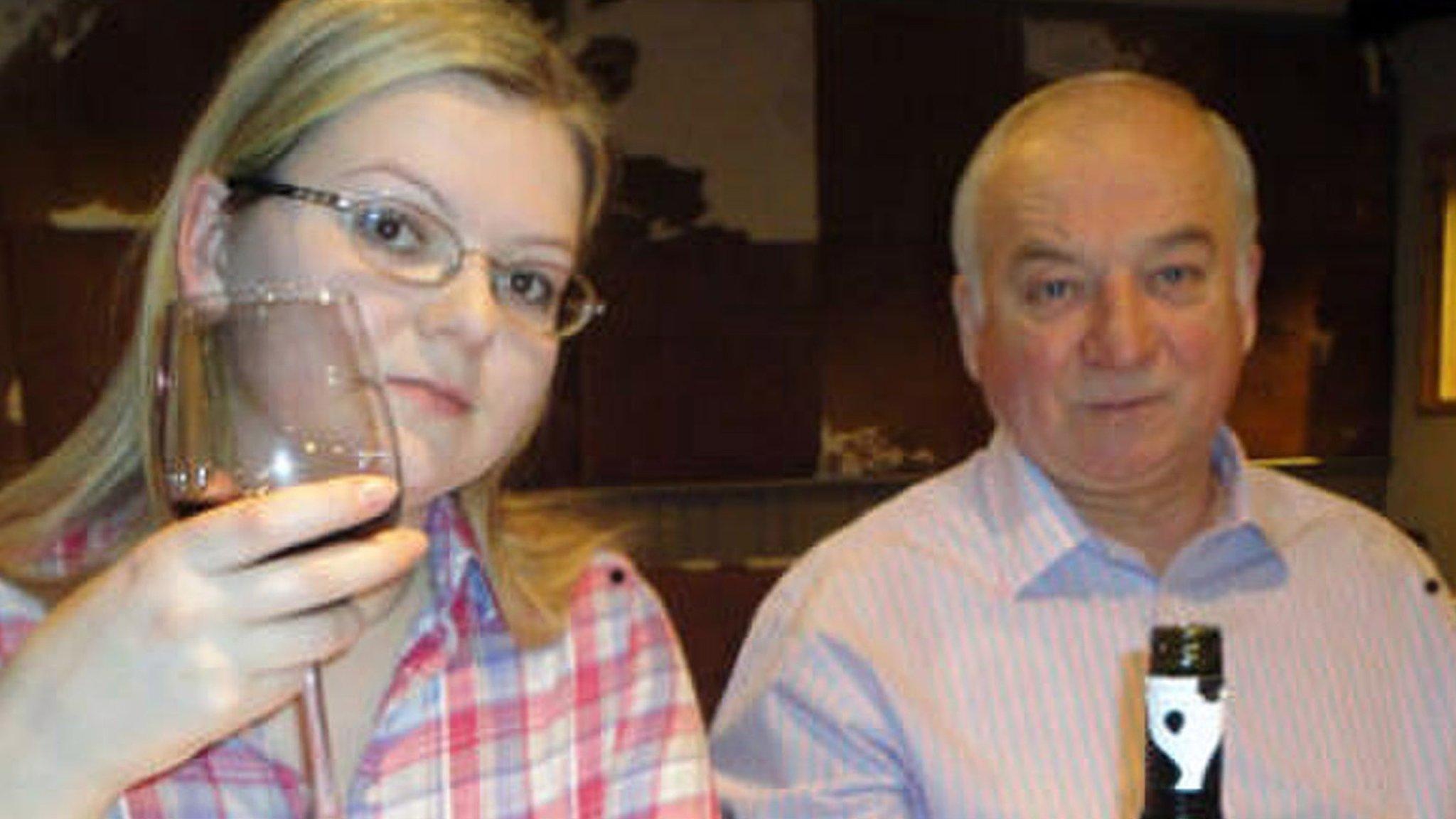
- Published8 October 2018
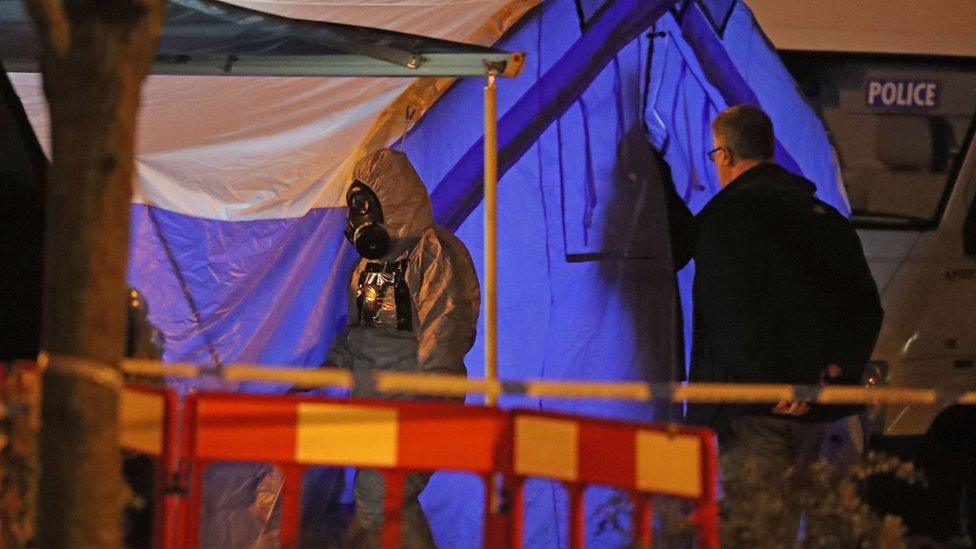
- Published9 September 2018
